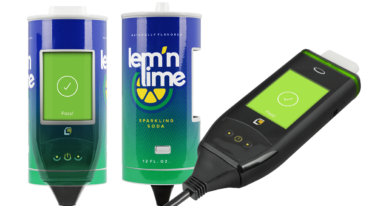
What to Do If You Get an Out of State DUI
Despite the constant education, state laws, and afterschool specials, drunk driving and arrests for driving under the influence of alcohol still remain common occurrences. Data shows that there are about 111 million self-reported incidences of drunk driving in the United States every year. In 2015, about 1.1 million individuals were arrested for driving under the influence of alcohol or narcotics.
If you are traveling and not making the best choices, there’s a high chance that you may end up with a DUI charge while out of your home state. This can be confusing, frustrating, and scary for you. Read on to learn more about what happens if you get a DUI out of state.
State DUI Laws
Not all states use the term “DUI” to refer to cases involving alcohol-impaired driving. You may experience DWIs (driving while intoxicated or impaired) or OWIs (operating a vehicle while intoxicated). While these terms can have specific meanings within each state, for now, just consider them all as referring to the act of driving a vehicle while drunk.
All laws have adopted a blood alcohol concentration of 0.08 percent as their legal limit. This means that if you are pulled over under suspicion of driving under the influence and have a BAC of 0.08 or higher, you are liable to be arrested and suffer the penalties, which often include fines, license suspension, and potentially jail time. The actual extent of these penalties is where things can get a little complicated.
Administrative License Suspensions
All states have administrative license suspension processes that are handled by the Department of Motor Vehicles (or related administration). These administrative suspensions can happen for two reasons: you refused to take a chemical test or your BAC was over the legal limit. This suspension often occurs almost immediately, but all states offer you the right to a hearing to overturn the suspension.
While you wait for your hearing, the suspension only applies to the state you are visiting. If you lose your court hearing or otherwise fail to request a hearing, the administrative suspension is reported to your home state. Depending on your home state’s laws, you may have to serve the administrative suspension in your home state.
The Driver License Compact
Most states (with the exception of Georgia, Maine, Michigan, Tennessee, and Wisconsin) have entered into the Driver License Compact, an interstate agreement that essentially allows for the exchange of information between states when a traffic crime is committed outside of your home state. In other words, if you are charged with a DUI in Oregon, the state officers and DMV in your home state of California would know about it.
Furthermore, your home state is allowed to treat the offense as though it had been committed at home. This allows your home state to apply its own state laws and penalties to your out-of-state offense.
Out-of-State Penalties
Your penalties for your out-of-state offense can punish you under its own state laws. This can include fines and jail time. While the state cannot take away your license, they can still revoke your driving privileges within the state until you enroll in a traffic school and pay the license reinstatement fee.
Home State Penalties
Some states have reciprocity agreements that go hand-in-hand with the Driver License Compact and require your home state to enforce certain punishments for a DUI. Outside of an administrative suspension, you may suffer a criminal suspension if you are found guilty of a DUI. The suspension length depends on a wide range of factors. Your home state may compare its own suspension periods with that of the other state and choose the longer of the suspension periods. Your home state may choose to enact a suspension as required by your driving records at home.
The fact is, out-of-state offenses can come with plenty of complications. You may end up needing to serve multiple suspensions and pay even higher fines. Don’t think that it’s better to get pulled over for an out-of-state DUI. If anything, the penalties involved may be twice as bad.
If you do end up with an out-of-state DUI, your best bet is to hire an attorney to fully understand your rights and the potential penalties you may have to serve.


